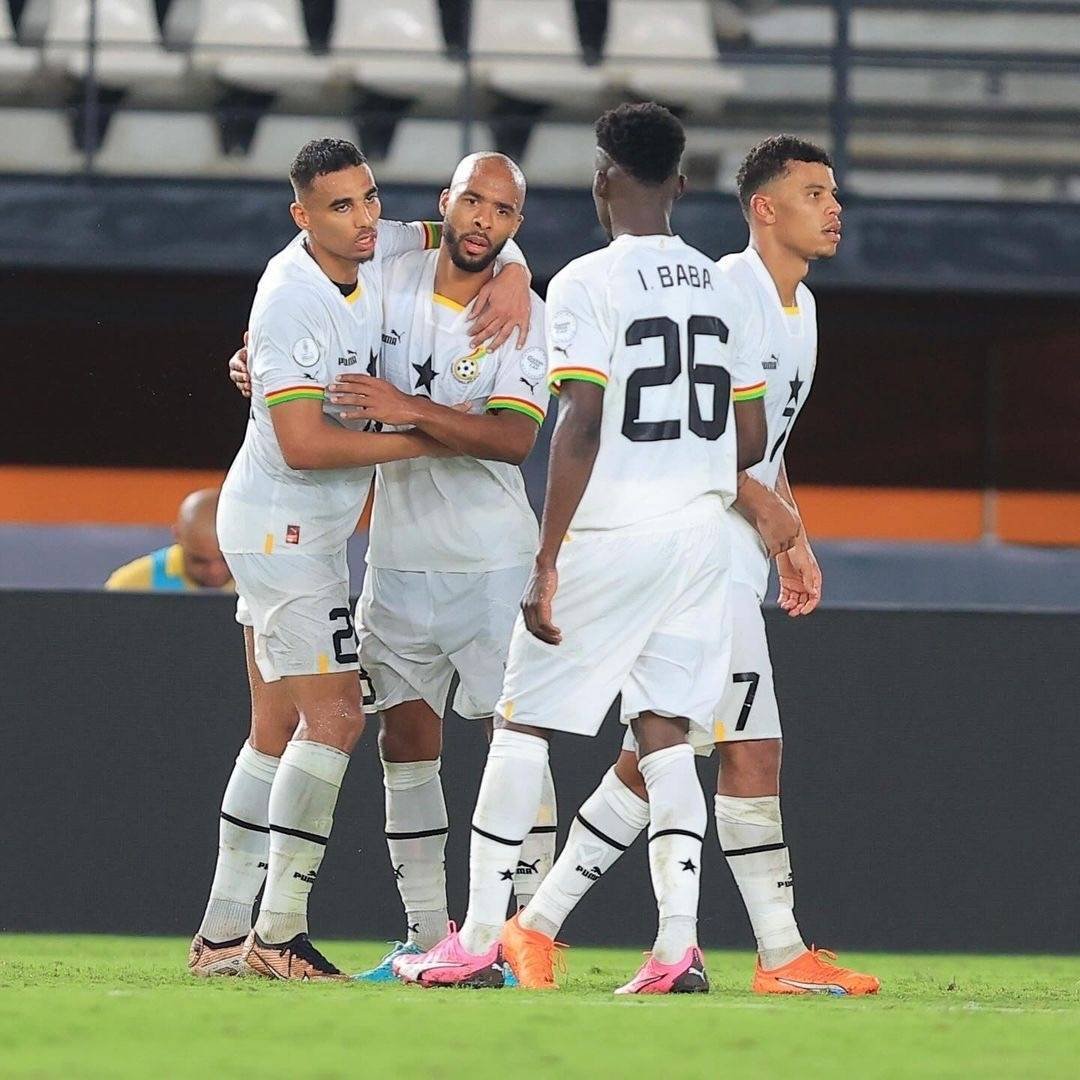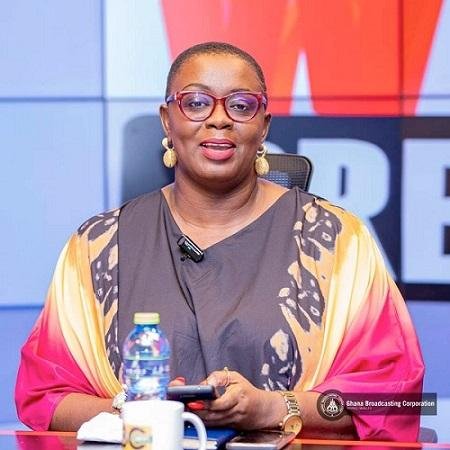Hot!
Nana Kwasi Gyan-Appenteng’s AFCON 2024 Diary-1

The Africa Cup of Nations: Will the Black Stars Anchor Hold?
The Africa Cup of Nations (AFCON), currently underway in Abidjan, Ivory Coast, has a storied history that spans over six decades.
As one of the most prestigious football tournaments on the African continent, AFCON holds immense importance, not only for football enthusiasts but also for the participating nations and their citizens.
A bit of history
AFCON traces its roots back to 1957 when the inaugural tournament took place in Sudan.
Initially, only three teams participated: Egypt, Sudan, and Ethiopia. Since then, the tournament has evolved and expanded, becoming a platform for African nations to showcase their footballing prowess.
AFCON holds great significance for African nations as it provides a platform for national teams to compete against each other, fostering unity and a sense of national pride.
The tournament showcases the immense talent and passion for football that exists across the continent.
Over the years, AFCON has witnessed remarkable growth, both in terms of participation and global recognition.
From its humble beginnings, the tournament now features 24 teams, attracting millions of viewers worldwide.
The competition has also become a talent showcase, providing a springboard for African players to secure contracts with top European clubs.
Moments and Icons:
Throughout its history, AFCON has seen numerous memorable moments that have etched themselves into the annals of African football.
From Ghana winning the initial cup for keeps, Egypt’s unprecedented dominance by winning the tournament a record seven times, to Cameroon’s thrilling victories in 1984 and 2000, each edition has produced its fair share of unforgettable matches and individual performances.
The tournament has also given rise to legendary players who have left an indelible mark on the sport. Icons like Samuel Eto’o, Yaya Touré, Jay-Jay Okocha, Abedi Pele, and Roger Milla have showcased their extraordinary skills on the AFCON stage, inspiring generations of African footballers.
Beyond Football: Social and Economic Impact:
AFCON’s importance extends beyond the realm of football. Hosting the tournament offers significant economic benefits to the host nation, boosting tourism, infrastructure development, and local businesses.
It also provides an opportunity for African countries to showcase their cultural heritage, fostering a sense of unity and promoting the continent as a vibrant and diverse destination. Moreover, AFCON serves as a powerful tool for social cohesion and nation-building.
The tournament brings together people from diverse backgrounds and unites them under a common love for the game, fostering a sense of national identity and pride.
As the Africa Cup of Nations continues to captivate football fans across the globe, its rich history and enduring importance become increasingly apparent.
This tournament not only celebrates the exceptional footballing talent that Africa possesses but also serves as a catalyst for social and economic development. AFCON is a testament to the power of sport in bringing people together and showcasing the best of the African continent.
The Black Stars in the mix
It is with this rich background of the tournament that Ghanaians are tormented by the 40-year cup drought. The Black Stars have lifted the cup four times, but it has been 42 years since a Ghanaian finger intentionally touched Africa’s foremost football trophy.
Since then, we have come close on a number of occasions, especially the two finals that were both won by Ivory Coast in penalty shoot-outs in 1992 and 2015.
Today, it would take bravery or foolhardiness, perhaps a combination of the two, to declare Ghana as one of the favourites of the tournament. But Ghana has history as its anchor, and our opponents don’t write us off, not even after succumbing to the likes of Comoros. Maybe, just maybe, the Black Stars achor will hold.
The 2024 edition of this venerable competition is on, and your daily Diary will keep you informed and entertained. Stay tuned.
Hot!
Let’s reintroduce Cultural Studies to complement educational reforms — Tourism Minister

Madam Abla Dzifa Gomashie, the Minister of Tourism, Culture and Creative Arts, has emphasised the importance of reintroducing Cultural Studies in schools as part of Ghana’s broader educational reform agenda.
She said Cultural Studies would complement existing efforts to reposition Science, Technology, Engineering and Mathematics (STEM) and Technical Vocational Education and Training (TVET) to promote digital literacy and expand Creative Arts education.
Speaking at the 2025 Homowo Festival of the people of Ningo-Prampram, held on the theme: “Education: The Best Legacy for our Children,” Madam Gomashie said cultural education was critical to national identity and development.
She noted that the festival’s theme aligned with the Government’s vision to transform education in Ghana and encouraged the youth to embrace it not only as a means of personal development but also as a way of preserving traditional values.
These values, including patience, wisdom, and hard work, were at the core of the Homowo celebration, the Minister said.
“Cultural festivals like Homowo are vital instruments for strengthening cultural identity, preserving historical memory, and fostering national unity. Additionally, festivals serve as platforms for educating the youth through storytelling, music, dance, and other traditional practices, while also providing opportunities for community engagement.”
Madam Gomashie highlighted the strong foundation that Ghana’s tourism was built on, which included culture, traditions, and the creative industry, collectively contributing to over GH¢4.8 billion to the economy.
“Festivals give tourists reasons to visit our country. Therefore, with the right infrastructure and the development of all the domains, the sector can do more than what has been recorded,” she added.
Mr Sam Nartey George, the Member of Parliament for Ningo-Prampram and Minister of Communication, Digital Technology and Innovation, commended the community for their vibrant participation in the festival. He announced plans for the construction of a new nursing training school in Ningo, aimed at expanding access to healthcare education in the area.
Nene Osroagbo Djangmah XII, Paramount Chief of Great Ningo Traditional Area; King Dr Tackie Teiko Tsuru II, Ga Mantse; Nene Tetteh Wakah III, Paramount Chief of the Prampram Traditional Area; Prof. Odaifio Welentsi III, Paramount Chief of the Nungua Traditional Area; Naana Dugbakuwor Dugba II, Paramount Queen Mother of Great Ningo; and Mr. Elvis Afriyie Ankrah, Special Envoy on Religion and Inter-Faith Affairs, who represented the Chief of Staff, were among dignitaries at the festival. -GNA
Hot!
Focus on more pressing issues like Galamsey, not hate speech – Ellen Ama Daaku to Mahama

An aide to former Vice President Dr. Mahamudu Bawumia,Ellen Ama Daaku has advised President John Dramani Mahama to shift his attention from social media hate speech to more urgent national issues such as illegal mining.
Speaking in an interview, she noted that the President’s recent comments about tracking the IP addresses of people who spread hate speech were unnecessary.
According to her, President Mahama must first define what he considers to be hate speech before seeking to punish people for it.
Ms. Daaku argued that the President himself had benefitted from hate speech and social media attacks in the past when he was in opposition.
She said even during his time in government, he described his opponents and their tribesmen in unpalatable terms, which later drew complaints from former President Nana Akufo-Addo to the Catholic Bishops’ Conference.
She stressed that harsh criticism of leaders on social media should not automatically be considered hate speech, adding that former leaders, including former President Nana Akufo-Addo had all been subjected to it.
“He is only feeling what Nana Akufo-Addo went through for eight years,” she remarked.
While acknowledging the need to regulate misconduct online, Ms. Daaku insisted that going after social media activists should not be a priority.
She noted that many political activists, including herself, had been insulted and attacked online but never called for arrests.
She concluded that President Mahama should focus his energy on solving pressing problems such as galamsey and the economy instead of concentrating on critics on social media.
By: Jacob Aggrey






